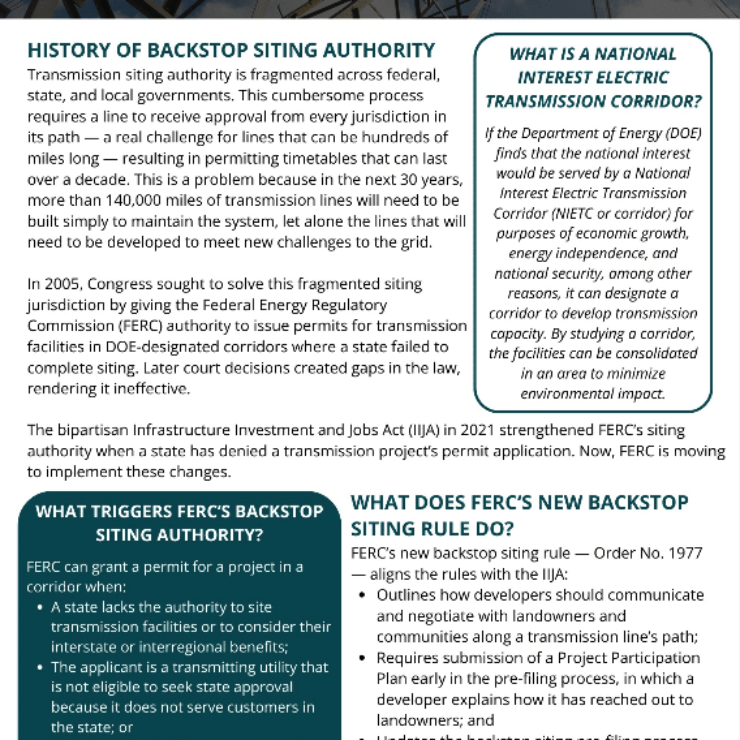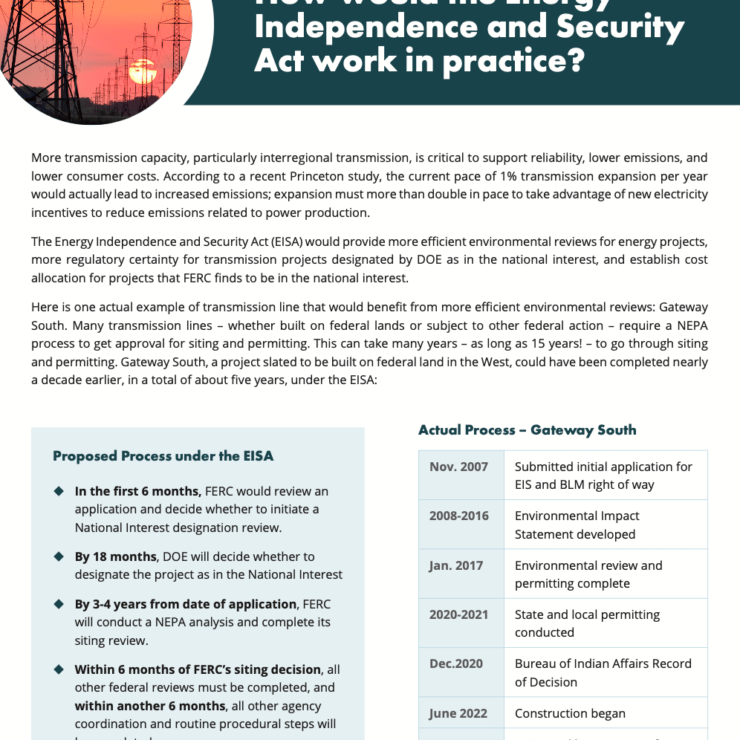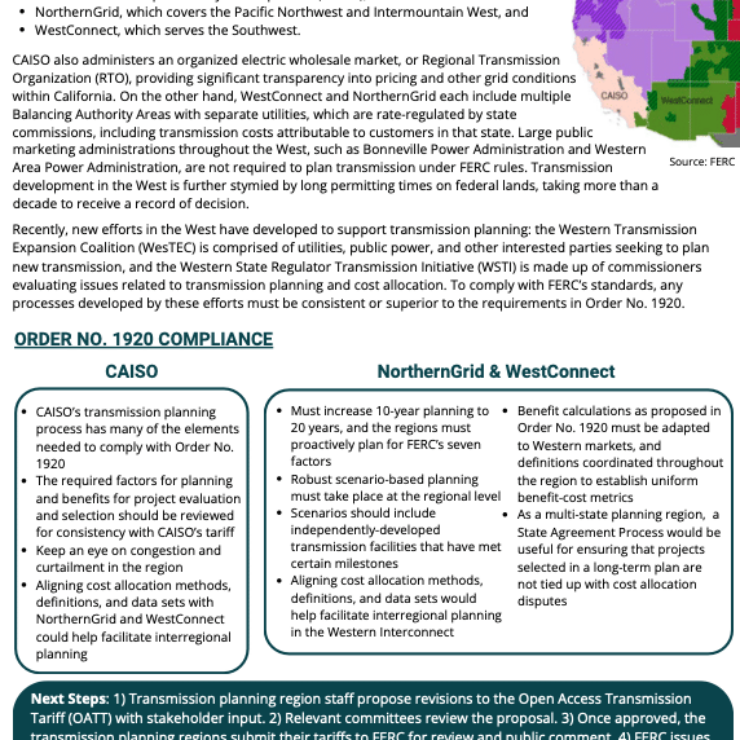Summary
Washington, D.C. — In recent years, New England’s transmission planning has been reactive, focusing on reliability rather than proactively addressing future needs. Although the region built a significant amount of transmission in the early 2000s — reducing congestion in energy and capacity markets and providing additional headroom — the Independent System Operator of New England (ISO-NE) conducts separate reliability, economic, and public policy studies, limiting the buildout of lines that achieve maximum benefits.
In May 2024, the Federal Energy Regulatory Commission (FERC) finalized its long-term regional transmission planning and cost allocation rule to strengthen the grid to meet future demand. How will ISO-NE be impacted by the new rule?




